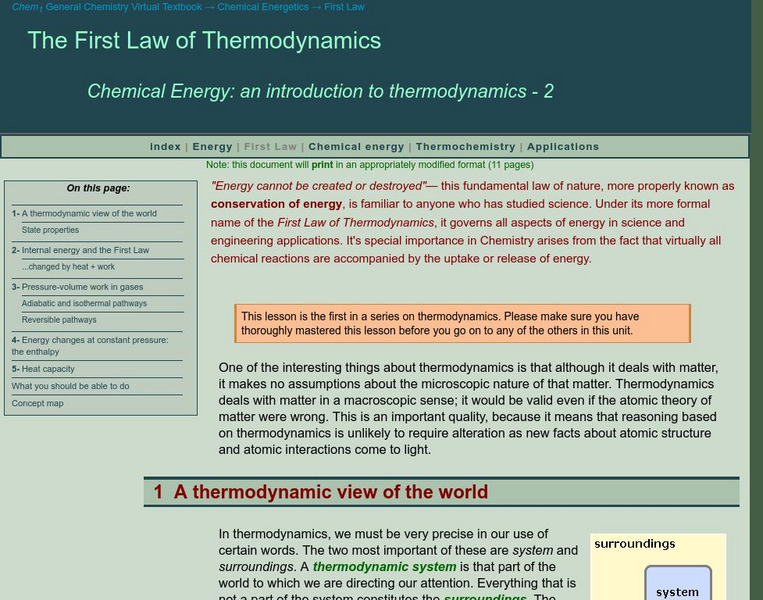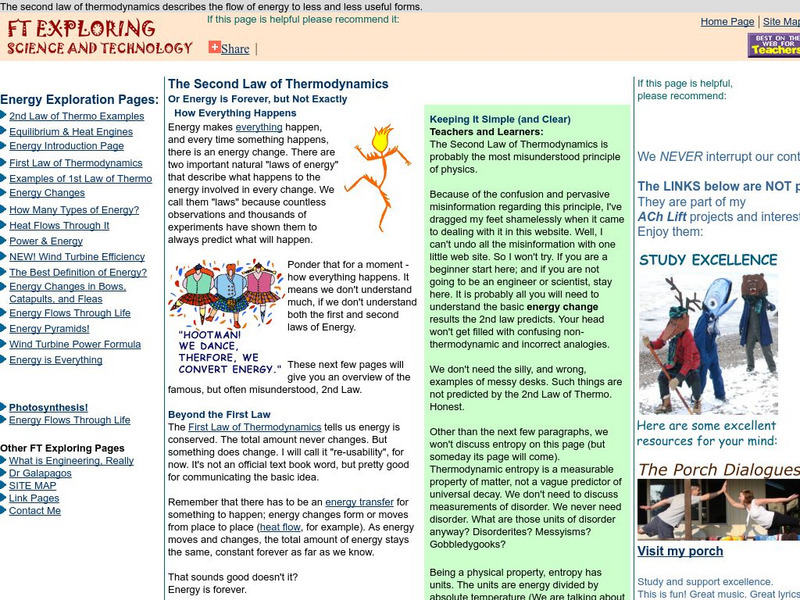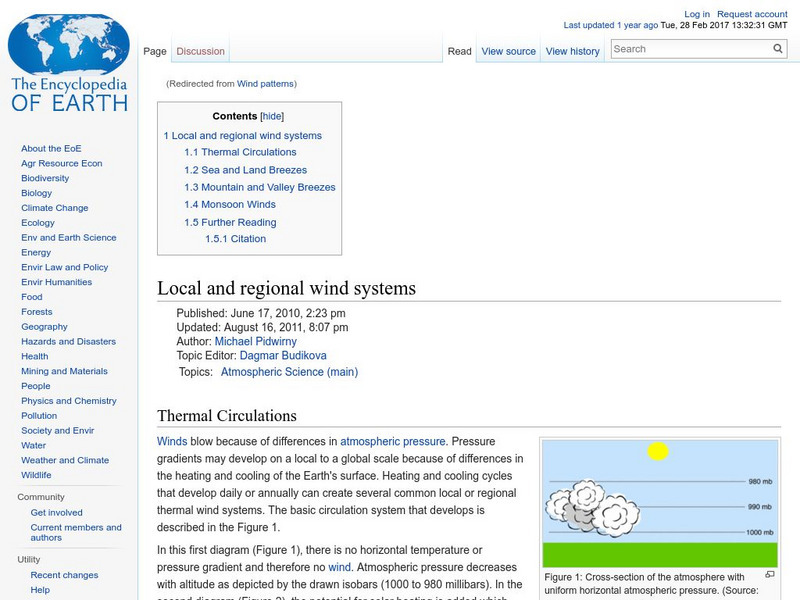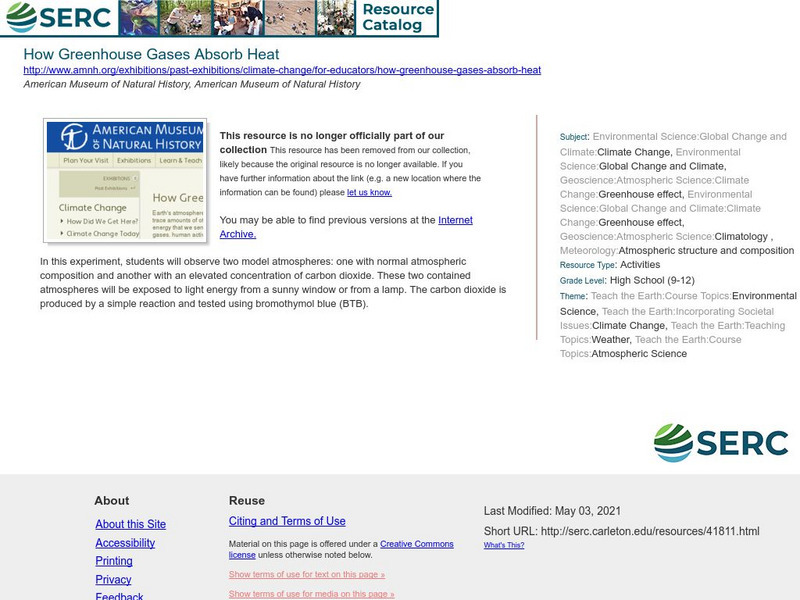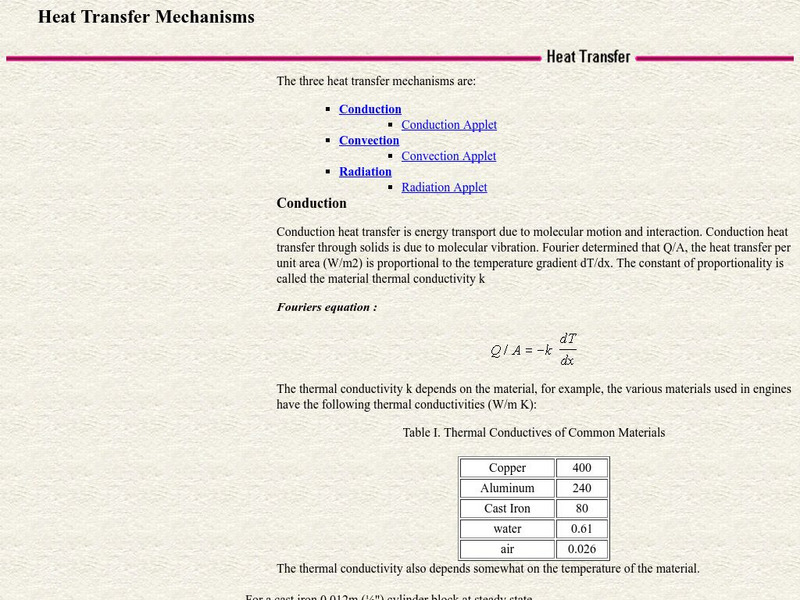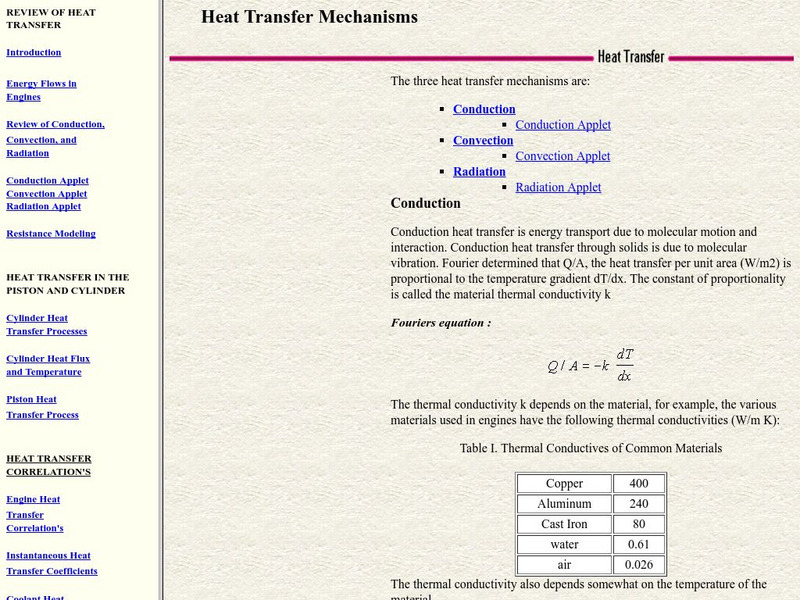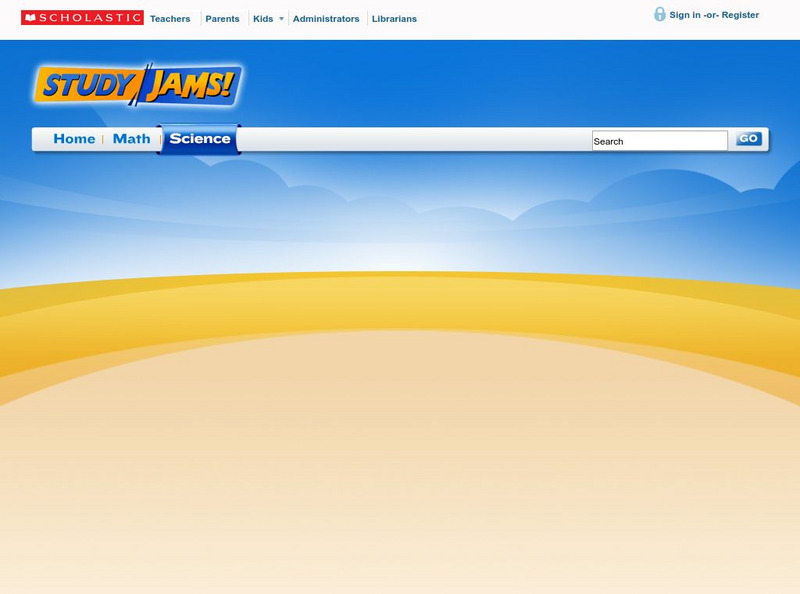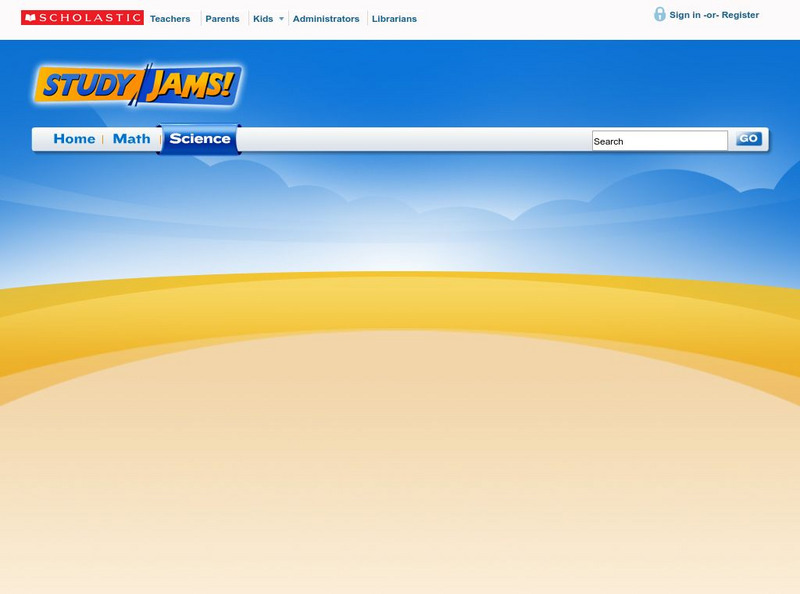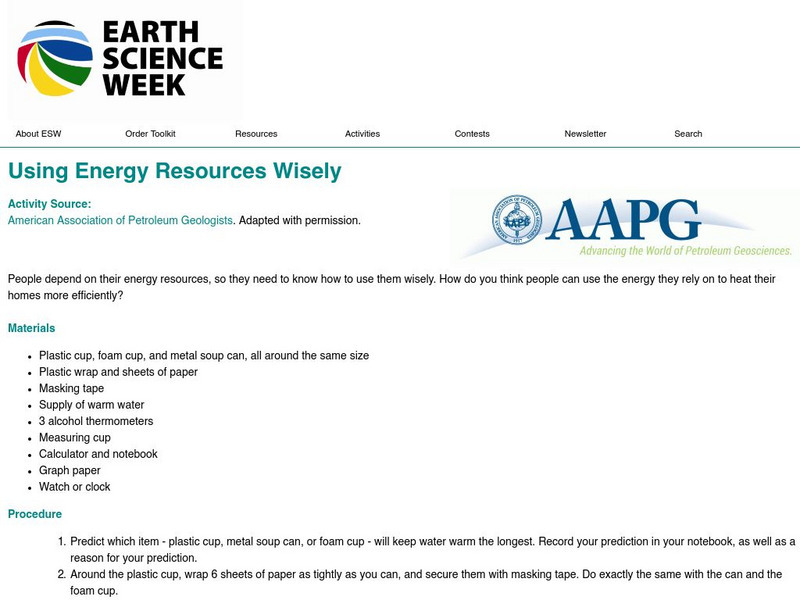FT Exploring
Ft Exploring: Energy Changes Make Things Happen
Nothing can happen without energy. Here you can learn about the many different ways that energy makes things happen.
Simon Fraser University
Chem1 Virtual Textbook: The Heat Capacity
With an overview of topics related to chemical energetics, this site provides a foundation to a study of thermodynamics and its relation the heat capacity or specific heat.
Crescent Public Schools
The Internet Science Room: The Kinetic Theory & Phase Change
This tutorial helps students understand the Kinetic Theory, which explains the effects of temperature and pressure on matter as it goes through phase changes.
Simon Fraser University
Chem1 Virtual Textbook: Chemical Energetics
A thorough introduction to chemical thermodynamics and the first law at the university level.
Simon Fraser University
Chem1 Virtual Textbook: Thermodynamics of Chemical Equilibrium
Use this college level resource as an introduction to chemical thermodynamics.
FT Exploring
Ft Exploring: What Type of Energy Is It?
How many types of energy are there? Are there many forms of energy, such as electrical, mechanical, and chemical? Or are there really just two types of energy - kinetic energy and potential energy? Here you can learn about these...
FT Exploring
Ft Exploring: The Second Law of Thermodynamics
Learn about one of the most misunderstood principles of physics, the second law of thermodynamics.
Encyclopedia of Earth
Encyclopedia of Earth: Local and Regional Wind Systems
Read about regional and local wind systems, including information on changes in atmospheric pressure, thermal energy in the atmosphere, sea and land breezes, mountain and valley breezes, and monsoon winds.
TED Talks
Ted: Ted Ed: Two Objects Same Room Two Different Temperatures?
How can two objects have the same temperature but feel like they have different temperatures? Veritasium explores this phenomenon. [4:00]
Climate Literacy
Clean: Ocean Impacts on an El Nino Event
Students examine the relationships among sea surface height, sea surface temperature, and wind vectors in classifying the ocean characteristics of an El Nino.
Science Education Resource Center at Carleton College
Serc: How Greenhouse Gases Absorb Heat
In this experiment students observe two model atmospheres: one with normal atmospheric composition and another with an elevated concentration of CO2. These two contained atmospheres will be exposed to light energy in a sunny window or...
University of St. Andrews (UK)
University of St. Andrews: Insulators
The nature of insulators is described at the atomic level. Band gap theory is used to explain what distinguishes insulators from conductors.
Other
Warmair.com: Programmable Thermostats
The virtues of programmable thermostats are discussed. Includes a section titled "Thermostat Set-back Calculation;" the visitor can enter the normal and an adjusted thermostat setting and an outdoor temperature and view the percent...
Other
Rob's North York Moors Railway: The Steam Locomotive
A page describing the parts of a steam engine and explaining their operation. Thorough discussion of the parts.
University of Alaska
Alaska Science Forum: Daniel Fahrenheit, Anders Celsius Left Their Marks
This resource provides an account of the lives of the two scientists responsible for two of the most common temperature scales. Includes biographical information about each and a description of how each developed their own temperature...
Colorado State University
Csu: Heat Transfer Mechanisms
An excellent page from the Colorado State University with a heavy mathematical emphasis. Each form of heat transfer--conduction, convection, and radiation--is defined, compared, and contrasted. Mathematical equations governing the rates...
Colorado State University
Colorado State University: Heat Transfer Mechanisms
An excellent page from the Colorado State University with a heavy mathematical emphasis. Each form of heat transfer--conduction, convection, and radiation--is defined, compared and contrasted. Mathematical equations governing the rates...
Colorado State University
Csu: Model of Basic Otto Cycle
This site from the Colorado State University discusses the Otto cycle of a car engine. Includes a highly mathematical treatment of the efficiency of such engines. Includes a link to a java applet investigating the efficiency of such...
State University of New York
State University of New York: Heat Transfer Between Substances
The following simulation assesses students understanding of thermal energy, transfer and equilibrium.
Scholastic
Scholastic: Study Jams! Science: Matter: Energy & Matter
A video and a short quiz on the different forms of energy, and how energy moves or changes matter.
Museum of Science
Museum of Science and Industry: Online Science: Get the Porridge Just Right
Step-by-step illustrated instructions for an experiment investigating the loss of heat in three bowls of porridge.
Scholastic
Scholastic: Study Jams! Science: Energy, Light and Sound: Heat
A video and a short quiz on heat, covering its difference from temperature, thermal energy, and the means by which heat is transferred.
American Geosciences Institute
American Geosciences Institute: Earth Science Week: Using Energy Resources Wisely
Students test which type of material retains heat the longest.
CPALMS
Florida State University Cpalms: Florida Students: Conservation of Energy
Learn about the Law of Conservation of Energy.



